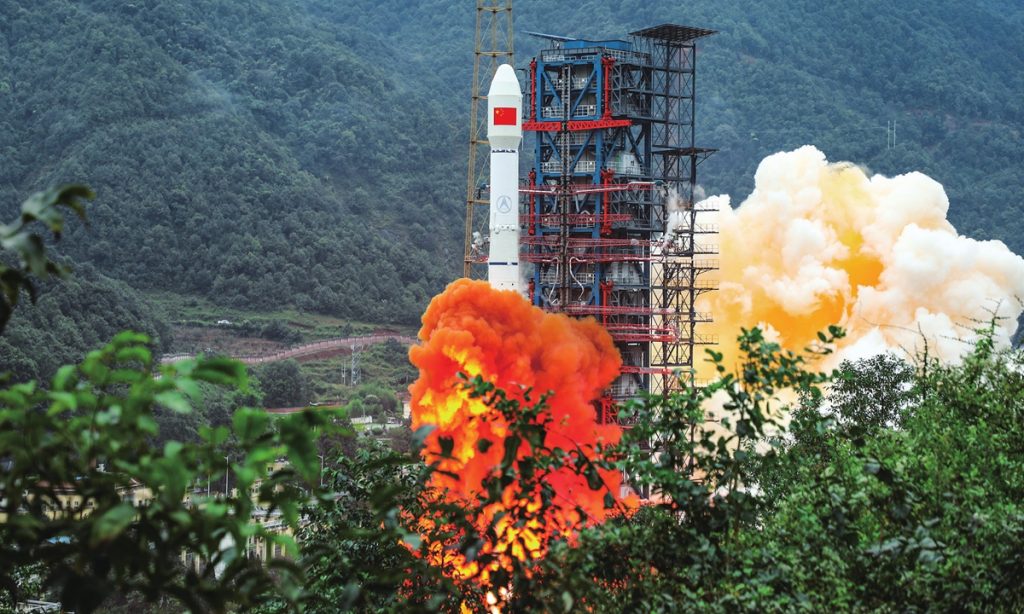China has launched a military satellite designed to deal with space junk. On October 23, 2021, it launched aboard a Long March 3B carrier rocket from the Xichang Satellite Launch Center in Southwest China’s Sichuan Province.
The latest launch was China’s 39th space launch in 2021, tying the previous record of 39 missions achieved in 2018 and 2020.
“Shijian-21 will test and verify space debris mitigation technologies,” Xinhua reported. Within an hour of launch, the China Aerospace Science and Technology Corporation declared the mission a “complete success.”
The Shanghai Academy of Spaceflight Technology created the satellite. However, academy sources declined to reveal any other information about the spacecraft. Shijian-21 was deployed in a geosynchronous transfer orbit, according to SpaceNews.
“The Long March-3B carrier rocket has made three technological improvements for the launch, including canceling pressure test on the third stage tank, which further optimized the pre-launch preparation and enhanced the reliability of the type,” said Zhang Tao, a deputy chief designer with the Long March-3B carrier rocket developer China Academy of Launch Vehicle Technology (CALT), said in a statement.
According to the CALT, the Long March-3B carrier rocket will launch three more times before the start of 2022.
The mission is contributing when the amount of space junk in the atmosphere is at its peak. Currently, more than 40 countries have launched 8,950 satellites into space. Around 5,000 of these satellites remain in orbit. However, a majority have reached the end of their significant role. Only roughly 1,950 of these spacecraft are still operational, with the rest degrading into space debris.
This increases the risk of operating spacecraft colliding with the space junk, resulting in severe damage to the spacecraft. In addition, in March of last year, it was discovered that a Chinese satellite had been struck by an outdated Russian rocket.
Several organizations, notably Kurs Orbital, have begun to solve this problem, but China’s purpose may be more focused. Would China tackle the issue of space junk while so many other countries seek explanations? Let’s wait and watch!

